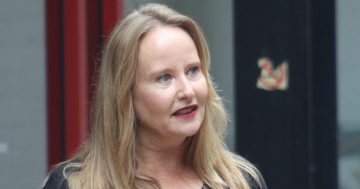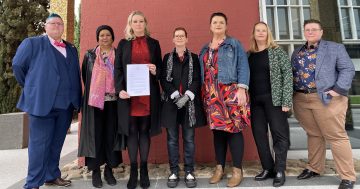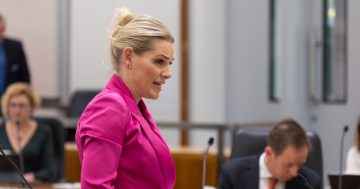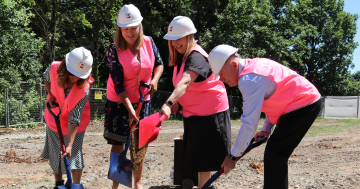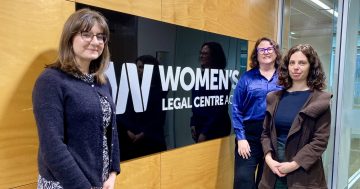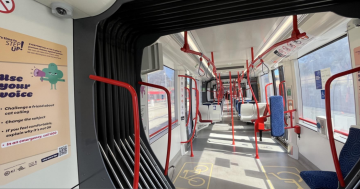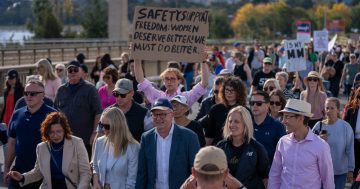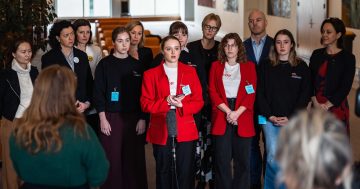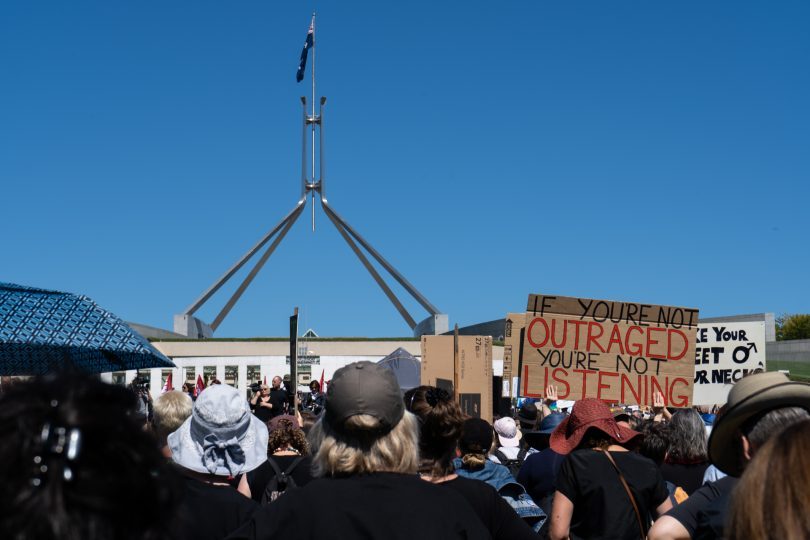
The March4Justice protests in March were a response to gendered violence and workplace harassment. Photo: Region Media.
Nearly half of young women aged between 16 and 24 have experienced some form of sexual harassment, a new report from the YWCA Canberra has found.
Over 1200 women shared their life experiences with housing, employment, financial wellbeing and violence as part of the 2021 Our lives: women in the ACT survey conducted by YWCA Canberra, the feminist not-for-profit group.
The subsequent report found COVID-19 had exacerbated economic inequality in Canberra and that gender inequality remained an issue.
YWCA Canberra CEO Frances Crimmins said that globally, “women were disproportionately impacted by the consequences of COVID-19”.
This could have been because of heightened employment stress and homeschooling demands, among other factors, she explained.
Ms Crimmins noted in her introduction to the report that it becomes harder for women and non-binary people to combat the already existing inequality when additional factors are added.
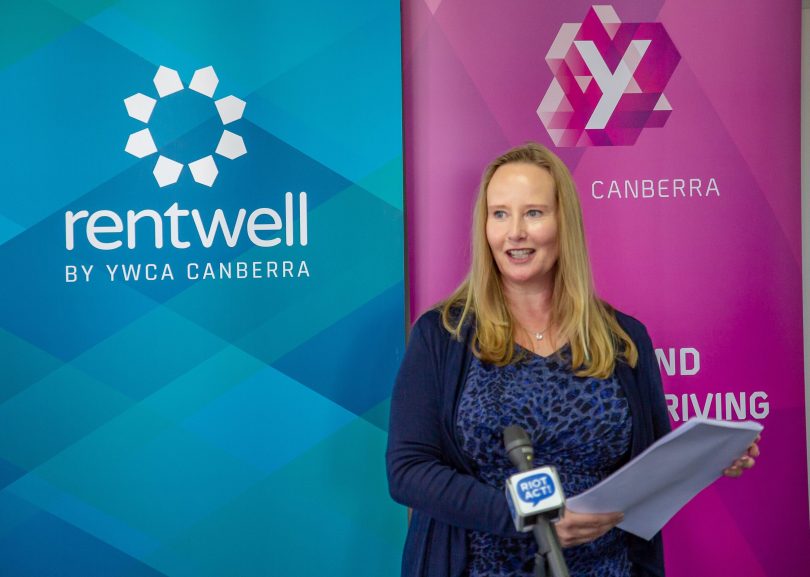
YWCA CEO Frances Crimmins said the report’s findings confirmed what those working in the sector already knew. Photo: File.
Another concerning impact of the COVID-19 pandemic had been an increase in domestic and family violence. The YWCA Canberra saw many first-time users of their support services throughout lockdown, Ms Crimmins noted.
Although ACT Policing had not recorded an increase in call-outs for domestic or family-violence incidents during lockdown, their spokesperson noted that “anecdotally, support agencies received an increase in reports of incidents”.
One survey respondent noted that “DV [domestic violence] escalated during COVID”.
“I had to leave my house and am currently in a rental property until I can get a property settlement when I hope to be able to buy a home”.
Of the respondents, 14 per cent said they had experienced some form of emotional, physical, verbal or financial abuse in a domestic or interpersonal relationship in the year before the survey.
The situation was exacerbated for those from culturally diverse backgrounds, people with a disability, gender or sexuality-diverse people and/or Aboriginal or Torres Strait Islander people.
Twenty-eight per cent of respondents with a disability had experienced some form of violence in the preceding 12 months while nearly 50 per cent said they had been subjected to discrimination based on their disability.
The report also found 42 per cent of respondents aged 16 to 19 had experienced some form of sexual harassment; for those aged 20 to 24, the rate rose to 48 per cent.
Respondents were also asked about the location of the most recent occurrence of sexual harassment.
As people aged, the workplace was more likely to be the site of sexual harassment.
“With the national spotlight on sexual harassment in workplaces, our findings just further reinforce the need for urgent action to address this form of gender-based violence,” Ms Crimmins said.
The YWCA report was released only days after an independent inquiry into workplace culture at Parliament House found one-in-three current workers had experienced sexual harassment.
The Jenkins’ report also described a toxic culture where an imbalance of power had created a “boys club” in which unacceptable conduct and bullying were permitted.
Ms Crimmins said it had been “very timely” indeed and that it was up to all men who witnessed this kind of behaviour to stand up and speak up.
“Women are saying enough, but we also need men to stand up and say enough as well.”
If you or someone you know is impacted by sexual assault, domestic or family violence, call 1800RESPECT (1800 737 732) or visit www.1800RESPECT.org.au.
DVCS’s free service can be reached 24/7 on 6280 0900, via SMS on 0421 268 492, through email at crisis@dvcs.org.au or on their website dvcs.org.au. In an emergency, call triple zero (000).












